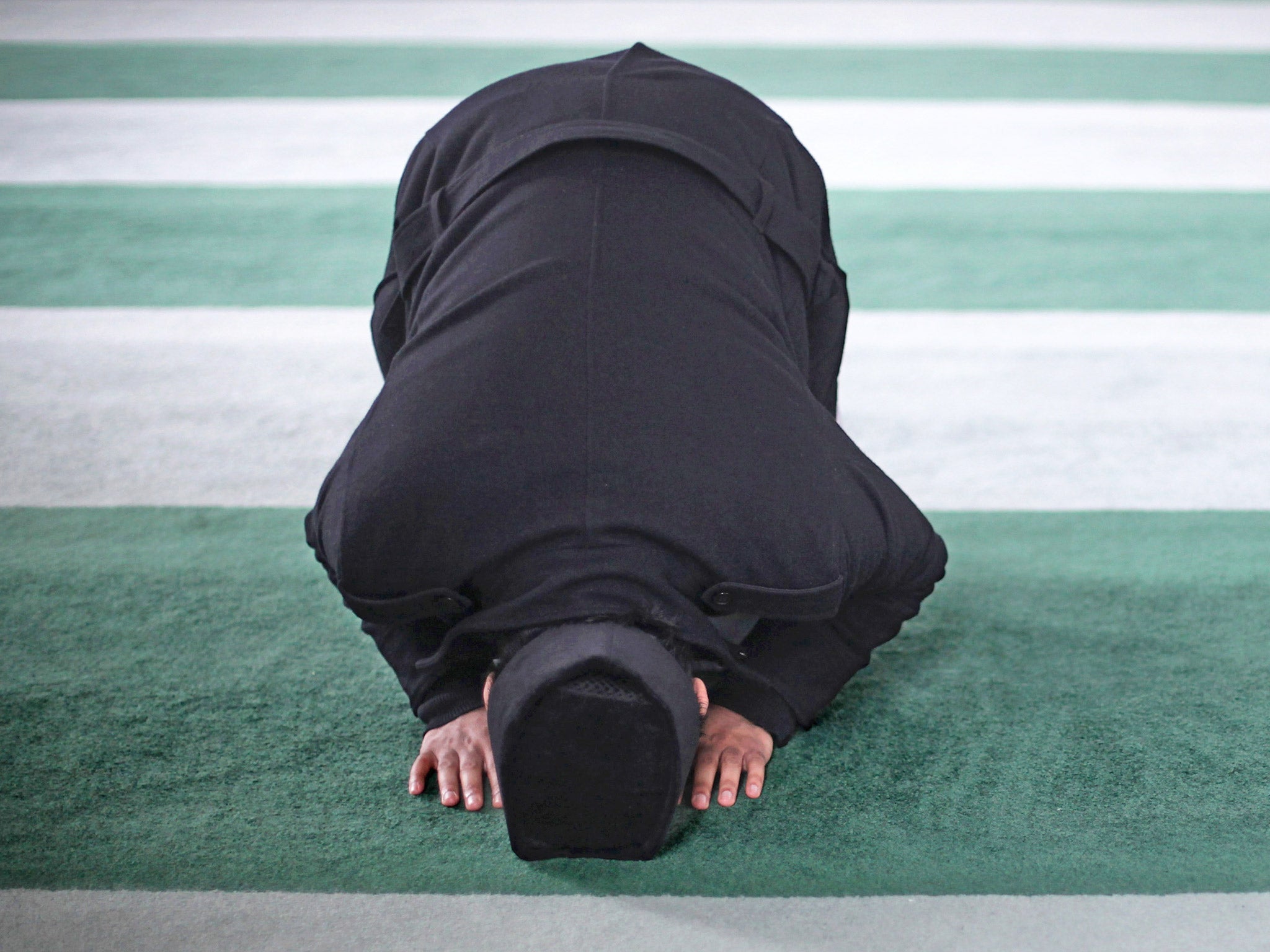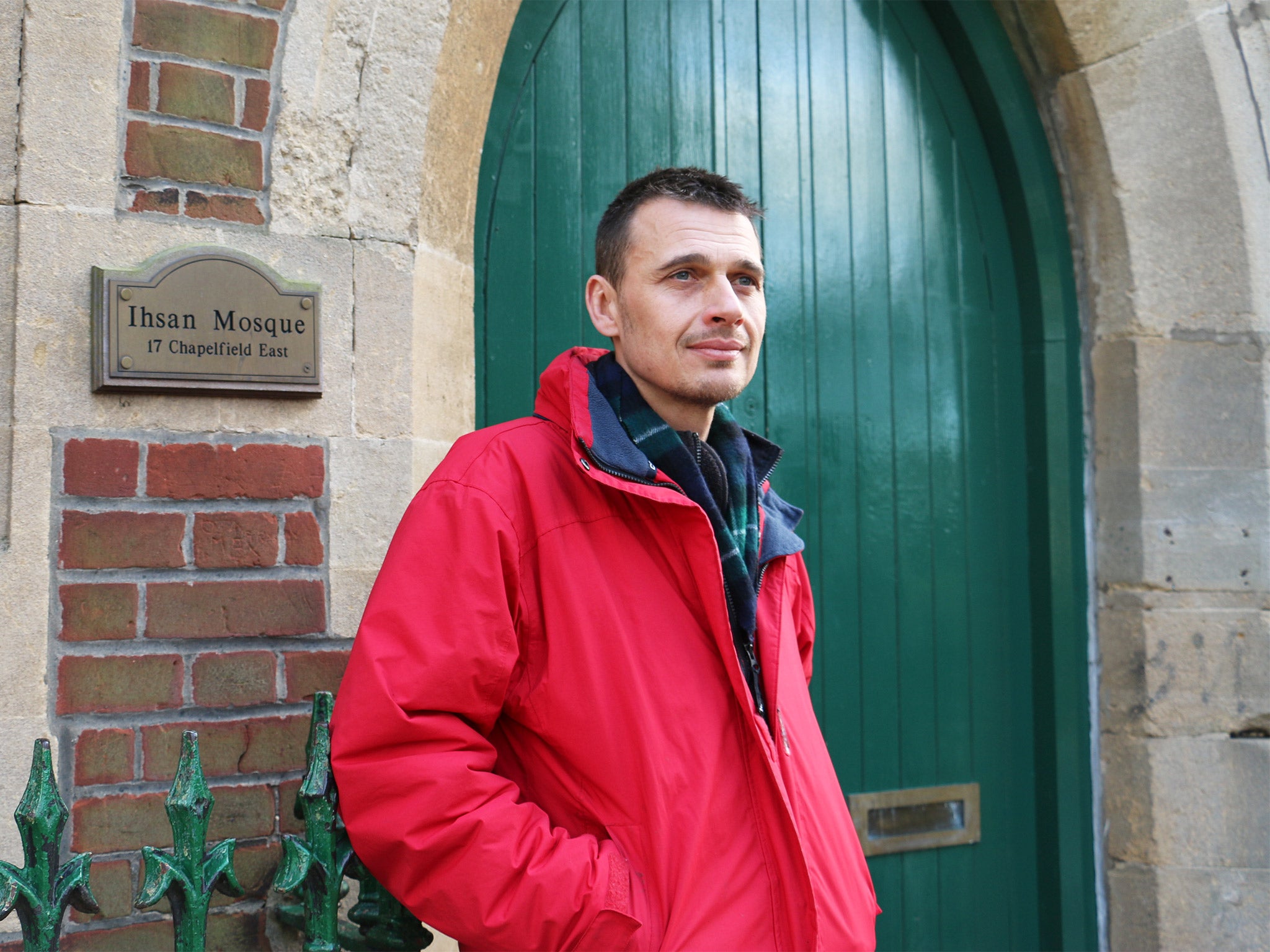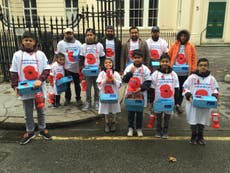MI5's attempts to recruit informants blamed for making British Muslim converts objects of suspicion
Research says male converts are regarded as 'outcasts' who have embraced an 'alien and threatening' culture

British men who convert to Islam are often targeted by the security services and asked to become informants, causing them to be treated with suspicion by other Muslims, according to new research.
Typically becoming isolated from their families and the rest of society, Muslim converts are commonly regarded as “outcasts” who have embraced an “alien, primitive and threatening” culture, the study conducted by the University of Cambridge’s Centre of Islamic Studies found.
Researchers examined the experiences of 50 British men of all ages, ethnicities and faith backgrounds who converted to Islam. They discovered during the 18-month project that many of them felt demonised by media coverage which usually portrayed them as potential terrorists.
Some of the participants in the study said they had been personally approached by MI5 and asked to work as informants, with agents using either “flattery” or “veiled intimidation” to recruit them. The use of this tactic resulted in many converts being treated with suspicion by other Muslims, making integration more difficult, the report said.
Professor Yasir Suleiman, director of the Centre of Islamic Studies, said many converts were made to feel like “outsiders” by their friends and families but also by other Muslims, leaving them exceptionally isolated. “In the West, conversion to Islam has been tarnished by claims of extremism – both violent and non-violent – radicalisation, and, sadly, terrorism,” he added.
“It has also fallen victim to the general apathy towards faith in largely secular societies causing those who convert to be described by some as not only eccentrics, misfits, outcasts and rebels, but also as renegades, traitors or enemies or a fifth column who have turned their back on their original culture.”
The report, entitled Narratives Of Conversion To Islam In Britain: Male Perspectives, said Muslim converts were a “minority within a minority” and called for specialist groups to be created to help them cope with the feelings of rejection embracing Islam could cause.
Abdul Maalik Taylor, who converted to Islam from Hinduism 20 years ago and now runs Islamic tours of London, was one of the men who took part. He said he had suffered “physical and emotional abuse” from his family when he decided to change religion.
“My relatives thought I had become brainwashed. I was basically given an ultimatum: give up the religion or get out. I was 18 at the time. And I had to leave after being beaten up,” he said. Converts who have contributed to society are ignored by the media, which concentrates on those who have been radicalised, he added.
The reasons that British people convert to Islam are varied, the report says, ranging from falling in love with a Muslim partner to “spiritual searching” or experiencing a personal tragedy. Some even decided to embrace it after having “revelatory dreams”.
‘Fears are encouraged by the media’
Mark Barrett, from Norwich, converted to Islam eight years ago

My friends and family do treat me differently. Obviously people don’t quite know what to make of Islam in today’s world, so they sometimes kind of shy away from engaging in a conversation about it, even if I bring it up. But then at the same time, in the West generally there’s a genuine sense of sympathy and understanding in how Islam has not been properly understood historically because of the political wars that have taken place.
I think the fears that come up tend to be fears that have been encouraged by media representations more than anything else.
‘It was as if I’d said I was Jimmy Savile’
Adrian Heath, from Nottingham, also converted to Islam eight years ago
I don’t think anybody changes their religion unless there’s a major upheaval, forcing them to evaluate where they’re at.
I wasn’t having a great marriage, and the Islam business completely killed that one off. You find that your wife will support you in many things, but not becoming a Muslim.
My parents found out by accident, and it was like someone had hit them over the head with a frying pan. My in-laws thought I might as well have just put my hands up and admitted to being Jimmy Savile. You can tell people you’re a Buddhist or a Wiccan, but Islam has this unjustified shock value.
Subscribe to Independent Premium to bookmark this article
Want to bookmark your favourite articles and stories to read or reference later? Start your Independent Premium subscription today.






Join our commenting forum
Join thought-provoking conversations, follow other Independent readers and see their replies
Comments